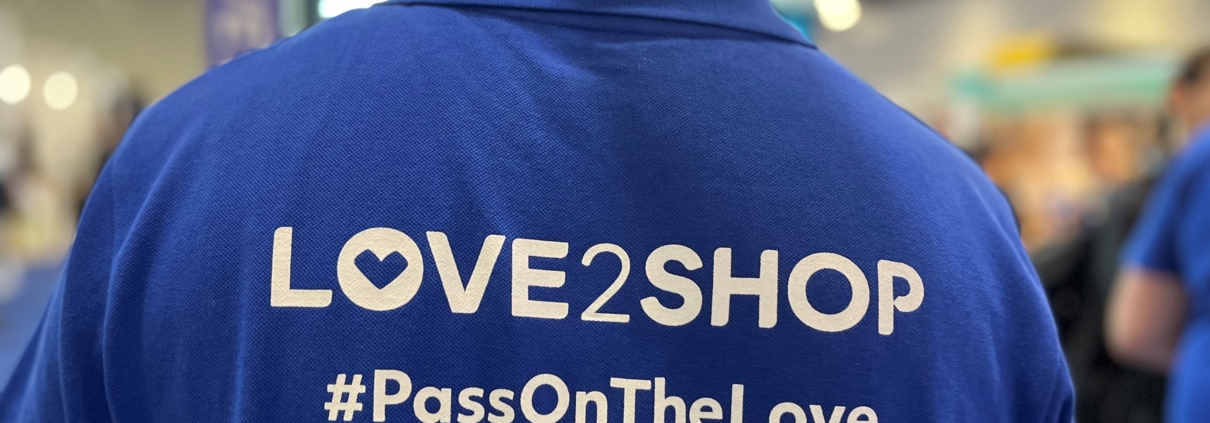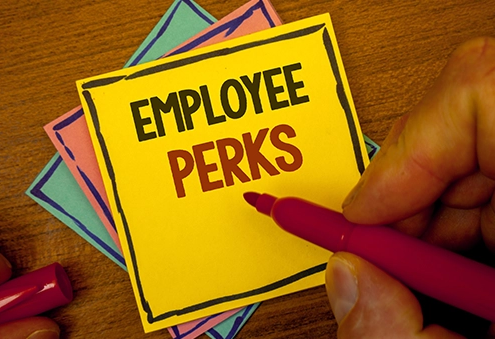5 things we learned from Employee Benefits Live 2023
The Love2shop team met with some incredible business leaders and HR professionals at Employee Benefits Live 2023.
Our team descended on London’s ExCeL to not only showcase what makes us one of the UK’s leading employee reward, recognition and engagement providers, but also to hear directly from customers and potential partners about what they want and need for their employee value strategy.
Here are our five biggest takeaways from the event:
1: Retail discount schemes are very popular
Many of the HR professionals we spoke to had either already introduced an employee discount programme or were actively looking to do so. With the rising cost of living, businesses offering employees savings on their everyday spending all year round are gaining the edge over their rivals.
Love2shop’s Everyday Benefits Card is one of the simplest, most cost-effective ways to offer high street and online discounts to staff. It’s a reloadable card offering a 7.5% discount on card loads which can be used for purchases and opening up access to a discount portal to save money on gift cards for major supermarkets and other essential brand.
2: Giving or reducing the cost of holidays and experiences is valued
Employee benefits are increasingly being used to offset essentials where people can, but people still want to enjoy themselves. With many cutting back on holidays, breaks and bucket-list experiences, an employee reward strategy that offers these has a significant impact on how employees feel. Implemented well, giving holiday or experience vouchers to ease the cost or even giving a bigger annual prize of a holiday helps create a more positive culture and drives motivation.
3: Meaningful gifts win every time
Rewards are not just any old thing you can give someone to say well done – they work best when they are meaningful. We spoke to people who have in the past given family breaks to holiday camps, signed football shirts and curated hampers to recognise colleagues.
But as businesses grow, it’s not always possible to tailor rewards so specifically. That’s why many HR professionals we spoke to want to give rewards that offer choice, so that the recipient can decide themselves what means most to them.
4: HR professionals consider gift cards an effective employee reward
Just to be clear from the outset – we understand gift cards are part of our business. We also know that most of the people attending Employee Benefits Live already appreciate the value of reward and recognition.
But we struggled to find anyone who didn’t feel gift cards were an effective employee reward. Among the reasons were the choice of brands they offer, the simplicity of managing them and feedback from employees who found myriad ways of maximising their value – from helping them get big-ticket items they had been saving for to reducing the cost of their holidays, even using them to pay for the weekly shop or food for a party.
5: Flexibility is key
We all work with people who are diverse, inspiring and unique – and employee rewards need to reflect that. The leaders we spoke to at Employee Benefits Live told us that employing people with a diverse range of interests and motivations strengthens their business, but it can pose challenges when offering consistent, fair rewards to teams or individuals.
What we learned is that, from an employee engagement perspective, employers want to offer rewards that motivate performance and support a positive workplace culture. In many cases that includes something that supports employees who are managing the challenges of an inflating economy. Giving the gift of choice allows the recipient to decide how their reward can best benefit them.
And we were thrilled to find that so many visitors to the show were already using Love2shop in some form within their business – whether through employee discounts, by utilising our engagement platform or simply offering Love2shop Gift Cards, e-Gift Cards and vouchers as spontaneous rewards.
The stories we heard at Employee Benefits Live fit well with some of our findings in the Love2shop Employee Value Report 2023.
Available to download here, it explores why 5.5 million UK workers still feel undervalued and offers insights into what workers across the UK think about rewards and recognition and their impact on productivity.
Contact our expert team here to see how we can support your employee reward and recognition strategy through Love2shop.












